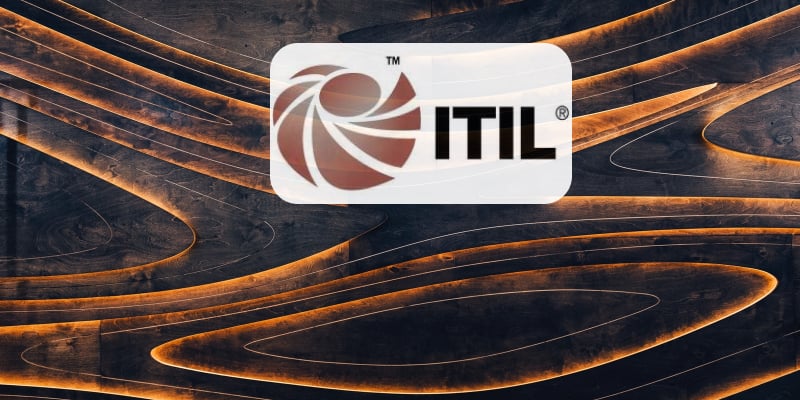What You Need to Know About ITIL Qualifications and Certifications
ITIL practices are designed to help organizations identify areas that need improvement. These are vendor- and industry-neutral guidelines that help companies optimize and streamline their processes, maximize the efficiency and reduce costs. To understand what ITIL is about, it helps to know a little of its history.
Back in 1980s, the UK Government’s Central Computer and Telecommunications Agency (CCTA) developed a set of recommendations to respond to the growing dependence on the information technology. CCTA recognized that without standard practices, government agencies and private sector contracts were forced to come up with their own IT management practices.
As a result, IT Infrastructure Library came along as a collection of books, each covering a specific practice within IT service management. ITIL was built around a process-model based view of controlling and managing operations. The initial publication (ITIL v1) covered 7 years from 1989-1996 and included over 30 volumes.
In 2001, ITIL v2 was released. It consolidated the publications into nine logical sets, making the library more accessible (and affordable). The edition grouped related process guidelines to match different aspects of IT management, services and solutions. Although ITIL version 2 has been amended since 2001, it remains the current version today.
How can ITIL help organizations today? It includes valuable guidelines for streamlining the processes by maximizing the potential of technology, which leads to better efficiency and balanced workload. The relevance of ITIL is proven by the popularity of ITIL qualifications and certification exams. ITIL certifications validate their holders’ understanding of the best management practices, with this expertise being highly valuable to government organizations, non-profits and commercial enterprises alike.
ITIL Qualifications
ITIL’s Qualification Scheme is based on the modular approach when all ITIL and ITIL-related qualifications are assigned a specific credit value. There are 5 levels of qualifications in the ITIL qualification layout.
- ITIL Foundation (worth 2 credits). ITIL Foundation exam consists of 40 multiple-choice questions and has no prerequisites. It covers basic terminology, elements and concepts associated with ITIL service lifecycle management.
- ITIL Intermediate Level (worth 15 credits)- is open ITIL Foundation holders who have completed an accredited training course. The intermediate level covers two areas: Service Lifecycle examinations (including Service Strategy, Service Design, Service Transition, Service Operation, and Continual Service Improvement) and Service Capability examinations (Planning Protection and Optimization, Release Control and Validation, Operational Support and Analysis, and Service Offerings and Agreements).
- ITIL Managing Across the Lifecycle (MALC, worth 5 credits) is the final required module that a candidate must take prior to achieving ITIL Expert Level. Upon successful completion of the education and examination components related to this qualification, candidates can expect to gain competencies in the following: Key concepts of the service lifecycle; Communication and stakeholder management; Integrating service management processes across the service lifecycle; Managing services across the service lifecycle; Governance and organization; Measurement; Implementing and improving service management capability.
- ITIL Expert Level requires the candidate to have accumulated 22 credits that have been gained by passing the ITIL Foundation, Intermediate Level and MALC exams.
- ITIL Master Qualification requires the candidate to already be ITIL Expert-level qualified. To achieve the ITIL Master Qualification, candidates must “explain and justify how they selected and individually applied a range of knowledge, principles, methods and techniques from ITIL and supporting management techniques, to achieve desired business outcomes in one or more practical assignments.”
When a candidate completes a given level of the ITIL examination, he or she is given the certification and the attributed credits. Each level of certification has its own requirements, all of which include earning a specific number of credits.
The ITIL Credit System also recognizes ‘ITIL Complementary Qualifications’ by giving credits for some credentials the candidate has received from other vendors, relevant to the ITIL body of knowledge. These credentials include APMG-International qualifications: Problem Analyst, Lean IT, ISO/IEC 20000, Service Catalogue, Configuration Management Database, Change Analyst, Sourcing Governance Foundation (SGF), BiSL, ASL2. Other recognized certifications are IT Service Management Foundation (EXIN), Certified Process Design Engineer (LCS certification), and BCS Specialist Qualifications in IT Service Management.
While the ITIL website allows for convenient calculation of your credits, the most common question ITIL candidates and wannabes ask is ‘How high up do I have to go? Is ITIL Foundation enough? Do I need to have an Expert level certification? Experts agree that ITIL Foundation is way too basic to be taken as a serious career step in the long run, so we recommend that you aim for the Expert or Master qualification to maximize your career potential and validate your knowledge and understanding of current information technology management practices.
